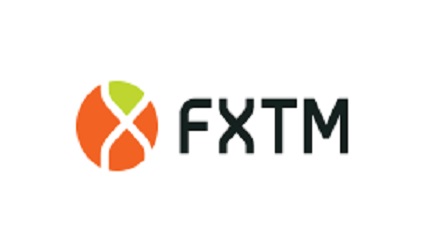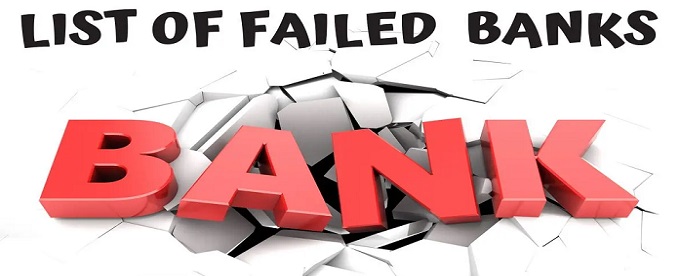E-Financial
Doha Failure Sparks Market Jitters- FXTM

An undeniable feeling of disappointed engulfed the global markets during trading on Monday following the unsuccessful Doha meeting on Sunday which erased any remaining credibility OPEC had to offer.
Despite Iran’s absence in the meeting, expectations were high for a freeze deal to be struck, but the visible dispute between Saudi Arabia and Iran sabotaged all efforts consequently causing WTI crude to plunge more than 5%. While realistically the effects of an output freeze would have had a minimal impact on the supply glut, even a symbolic gesture from OPEC to deal with the oversupply could have boosted optimism for future deals.
This string of events almost suggests that the major players in the cartel had no real intention of curbing production, but simply exploited the explosive levels of volatility to manufacture speculative boosts in prices based on false expectations.
Sentiment remains bearish towards oil, and with market participants losing hope in the ability of OPEC to work together in battling the excessive oversupply in the markets; bearish investors have been provided a platform to install another round of selling.
The last time oil prices sunk to the 13 year lows of $26.20 in February, oil producers felt the pinch and prices may need to trade back below $25 for desperation to kick in which could force a real output deal to be struck.
With the fundamentals of an unrelenting oversupply in the markets still present and concerns that demand may be waning, WTI crude remains heavily depressed.
Expectations are rapidly fading over the cartel working together and this should leave prices vulnerable in the short and medium term.
From a technical standpoint, the steep decline experienced in Monday’s session could provide enough momentum for WTI crude to trade back towards $38.
Stock Markets Sink
Global stock markets tumbled during trading on Monday following the disappointing Doha meeting that renewed a wave of risk aversion, consequently limiting investor risk appetite.
Asian markets were at the mercy of the meeting’s failure with previous gains relinquished as a re-established appetite for the safe-haven Japanese Yen dragged the Nikkei -3.4% lower. The bearish contagion from Asia ventured into Europe and may likely affect America as investors frantically scattered away from riskier assets to safe-havens.
With concerns over the state of the global economy already elevated, this Doha disappointment adds to the horrible mix of events that have periodically eroded global sentiment.
Oil prices may be poised for further declines as the markets drown in the oversupply and this should expose stock markets to more pain.
ECB Press Conference Looms
The Eurozone continues to be trapped in an ongoing battle with very low inflation levels, while tepid economic growth in Europe has left the European Central bank under noticeable pressure to take further action.
A catalytic combination of falling commodity prices and eroding global growth have obstructed the ECB’s 2% inflation targets with the central bank possibly trimming inflation forecasts once again amid the ongoing global woes. Sentiment remains bearish towards Europe and with the International Monetary Fund slashing Eurozone growth forecasts it seems likely that the ECB may unleash further stimulus measures to jumpstart growth.
A short period of Dollar appreciation may have created a higher low on the EURUSD at 1.1250 which could potentially offer an opportunity for bullish investors to install another round of buying momentum.
This pair remains remarkably bullish and the paradigm shift that has seen investors flock to the EUR, amid risk aversion, could act as an attribute which ensures that prices remain buoyed. From a technical standpoint, prices are trading back towards the daily 20 SMA while the MACD has crossed to the downside.
A breakout above 1.1300 could invite a further incline towards 1.140, on the condition that the 1.1250 support defends.
Commodity Spotlight – Gold
Gold bulls were offered a welcome boost following the Doha disappointment which renewed a wave of risk aversion and consequently encouraged investors to flock to safe-haven investments.
Despite the sharp declines in prices last week, the current change of developments coupled with ongoing concerns over slowing global growth could provide a foundation for bullish investors to install a fresh round of buying.
With ongoing Dollar vulnerability acting as the final ingredient for bulls to take the front seat once again, a solid break above $1240 should clear a path towards $1250.
From a technical standpoint, prices are trading above the daily 20 SMA while the MACD has crossed to the upside.
Potential resistance at $1240 could transform into a dynamic support for a drive up towards $1250.
Lukman Otunuga is a Research Analyst at FXTM
E-Financial
Sterling Bank Pledges ₦2bn to Fully Fund University Scholarships

Sterling Bank has launched a ₦2 billion scholarship initiative to support Nigerian students in private universities. The program, Beyond Education, was unveiled on Democracy Day and aims to remove financial barriers to higher learning.

The bank will fully sponsor 600 students from across Nigeria’s 36 states and the FCT to study Technology, Finance, Sales, and Public Health at Miva University, founded by Sim Shagaya. The selection process is merit-based, with candidates nominated by themselves or others, and final selection determined through public voting open to Sterling account holders.
Sterling Bank’s CEO, Abubakar Suleiman, described the initiative as an investment in Nigeria’s future, aligning with the bank’s commitment to Health, Education, Agriculture, Renewable Energy, and Transportation. The bank has already deployed over half a trillion naira in financing across these sectors.
According to Obinna Ukachukwu, Growth Executive at Sterling Bank, the program is about creating opportunities beyond education. The bank is shifting from short-term philanthropy to long-term ecosystem development, with investments in digitized healthcare, school financing, agricultural cooperatives, solar energy, and transport systems.
“Nigeria’s progress requires action,” Suleiman said. “We are funding the future architects of the country—those who will build the businesses, institutions, and innovations needed for national prosperity.”
Nominations for the Beyond Education scholarships are now open at www.sterling.ng/FUTURE. The initiative sets a precedent for private-sector-driven education investment, where success is measured not just in profit, but in people empowered.
E-Financial
FG to Train 100,000 Youths Annually in Forex Trading and Financial Skills

Federal Government of Nigeria has signed a Memorandum of Understanding (MoU) with Investonaire Academy to train 100,000 young Nigerians annually in forex trading, financial planning, and risk management.

The agreement, signed in Abuja, was announced by Omolara Esan, Director of Information and Public Relations at the Federal Ministry of Youth Development. According to her, the initiative is part of the government’s broader strategy to reduce youth unemployment and enhance financial inclusion.
At the signing ceremony, Minister of Youth Development, Comrade Ayodele Olawande, described the partnership as a milestone in the ministry’s efforts to equip young Nigerians with practical financial skills. He emphasized that the programme would foster critical thinking, improve digital literacy, and expand access to global economic opportunities.
Speaking on the collaboration, Dr. Enefola Odiba, International Programme Director at Investonaire Academy, highlighted the importance of empowering youth with relevant financial and digital skills. He described young people as essential drivers of innovation and national development.
The ministry assured that the programme would be implemented with transparency and measurable outcomes, ensuring that participants gain practical expertise in forex trading and financial planning.
The Federal Government has recently intensified efforts to boost skill development across various sectors. A separate plan aims to train 100,000 artisans nationwide, following the successful upskilling of 29,000 individuals in previous phases. This initiative seeks to professionalize vocational trades, eliminate quackery, and introduce licensing systems.
Additionally, technicians from specialized institutions will receive industry-standard training to strengthen Nigeria’s labor force and increase self-reliance in skilled professions.
Through these efforts, the government hopes to position Nigerian youth for economic success both locally and globally.
E-Financial
NDIC Begins Final Settlements to Creditors of Liquidated Premier Bank

Nigeria Deposit Insurance Corporation (NDIC) has begun the final phase of liquidation for the defunct Premier Commercial Bank, initiating the payment of liquidation dividends to verified creditors, nearly 25 years after the bank’s closure.

Premier Commercial Bank had its operating license revoked by the Central Bank of Nigeria (CBN) on December 20, 2000, following findings of financial instability and regulatory non-compliance.
Since then, the NDIC has overseen the bank’s liquidation process under a winding-up order from the Federal High Court, which designated the corporation as the official liquidator.
In a public announcement, the NDIC invited all eligible creditors to visit any of its zonal offices between June 2 and June 27, 2025, to verify and claim their entitlements.
This move marks a critical milestone in the final settlement of claims related to the bank’s collapse.
To facilitate the verification process, creditors are required to present proof of deposit or shareholding, such as a passbook, chequebook, term deposit certificate, or bank statement.
Additionally, valid identification documents must be submitted, including a driver’s license, international passport, national identity card, NIN slip/card, voter’s card, or a formal identification letter from a traditional ruler or local government chairman.
The NDIC assured the public that the ongoing settlement is part of a broader effort to bring closure to longstanding claims resulting from Premier Commercial Bank’s liquidation. The process, according to the corporation, has been designed to ensure efficient disbursement to all verified stakeholders.
Premier Commercial Bank is one of 53 deposit money banks whose licenses were revoked by the CBN between 1994 and 2018 due to various violations and signs of financial distress.
These closures were followed by legal procedures appointing the NDIC to manage asset recoveries and creditor settlements.
By initiating this final phase of payment, the NDIC is reaffirming its commitment to financial system stability and depositor protection while calling on all affected individuals and institutions to complete verification processes promptly to receive their due compensation.

 General News2 days ago
General News2 days agoAfDB to Provide $184.1mfor Africa’s Largest Solar Energy, Battery Storage Project

 News2 days ago
News2 days agoReport Reveals New Malware Posing as an AI Assistant Steals User Data

 General News2 days ago
General News2 days agoCourt Declines Access Bank’s Request to Freeze MTNN Account over N180Bn Claims

 Telecom2 days ago
Telecom2 days agoMTN Mulls Establishment of Fintech Firm in Nigeria, Others

 E-Business2 days ago
E-Business2 days agoFG Mulls Fibre Optic Layout to Bridge Internet Gaps

 News2 days ago
News2 days agoAliko Dangote Signs out @ Dangote Sugar Refinery as Chairman

 Telecom3 days ago
Telecom3 days agongCERT Issues High Alert to Nigerians Using Android Phones

 Telecom3 days ago
Telecom3 days agoMTN and Ecobank Launch Chess Championship to Empower Nigeria’s Youth














